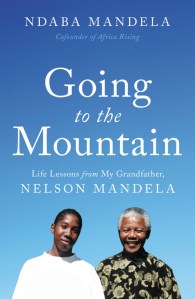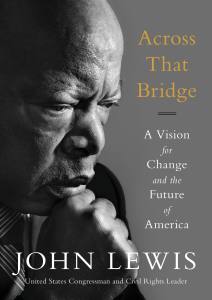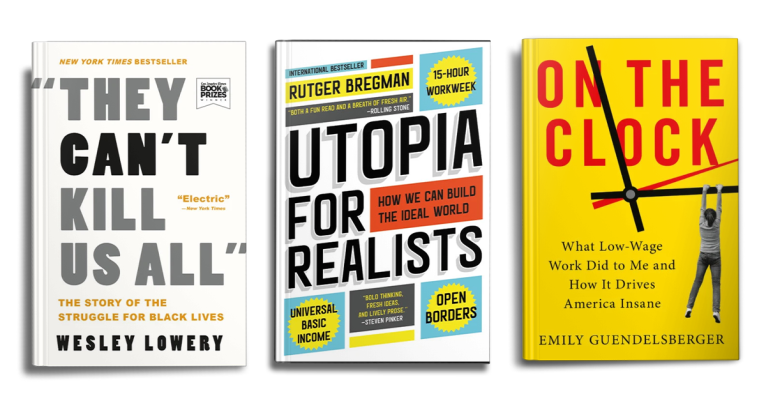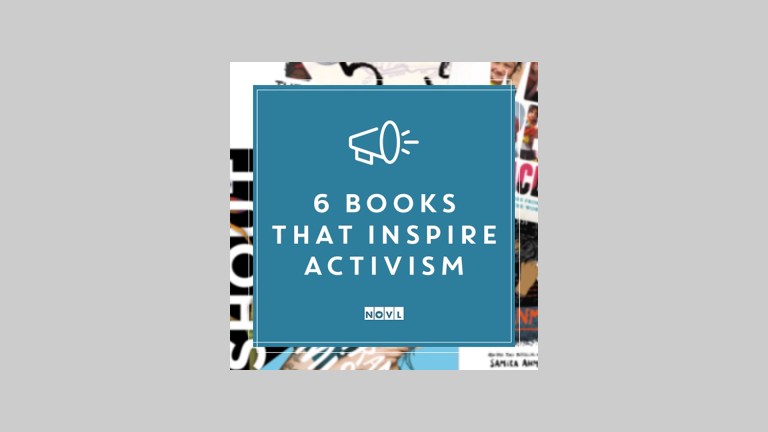4 Human Rights Books to Help Create A Better Future
Books can offer guidance and inspiration on uplifting underrepresented voices and enacting change for a better future. From Civil Rights icons and young climate change activists, these books on human rights, civil rights, and activism will help you find your voice and empower others do the same.
Americans have prided ourselves on how far we've come from slavery, lynching, and legal segregation-measuring ourselves by incremental progress instead of by how far we have to go. But fifty years after the last meaningful effort toward civil rights, the US remains overwhelmingly segregated and unjust. Our current solutions -- diversity, representation, and desegregation -- are not enough.
As acclaimed writer Calvin Baker argues in this bracing, necessary book, we first need to envision a society no longer defined by the structures of race in order to create one. The only meaningful remedy is integration: the full self-determination and participation of all African-Americans, and all other oppressed groups, in every facet of national life. This is the deepest threat to the racial order and the real goal of civil rights.
At once a profound, masterful reading of US history from the colonial era forward and a trenchant critique of the obstacles in our current political and cultural moment, A More Perfect Reunion is also a call to action. As Baker reminds us, we live in a revolutionary democracy. We are one of the best-positioned generations in history to finish that revolution.
To the rest of the world, Nelson Mandela was a giant: an anti-apartheid revolutionary, a world-renowned humanitarian, and South Africa's first black president. To Ndaba Mandela, he was simply "Granddad." In Going to the Mountain, Ndaba tells how he came to live with Mandela shortly after he turned eleven--having met each other only once, years before, when Mandela was imprisoned at Victor Verster Prison -- and how the two of them slowly, cautiously built a relationship that would affect both their lives in extraordinary ways.
It wasn't an easy transition. Mandela had high expectations for those around him, especially his family, and Ndaba chafed at the strict rules and exacting guidelines in his grandfather's home. But at the same time -- through overheard calls from foreign dignitaries as well as the Xhosa folk wisdom that his grandfather shared with him at every opportunity -- Ndaba was learning how to be a man. On a scale both personal and epic, Ndaba's extraordinary journey mirrors that of South Africa's coming of age -- from the segregated Soweto ghettos into which he was born to the privileged life in which he grew up and the turbulent yet exciting times in which he carries on his grandfather's legacy.
Going to the Mountain is, in the end, a story about unlocking the power within each of us. It's a cautionary tale about how a child's life can go one way or the other, depending upon the intervention of a caring soul--and about the awesome power of love to serve as a catalyst for change.
In turbulent times Americans look to the Civil Rights Movement as the apotheosis of political expression. As we confront a startling rise in racism and hate speech and remain a culture scarred by social inequality, there's no better time to revisit the lessons of the '60s and no better leader to learn from than the late Representative John Lewis.
In the final book published before his passing, Across That Bridge, Congressman John Lewis draws from his experience as a prominent leader of the Civil Rights Movement to offer timeless wisdom, poignant recollections, and powerful principles for anyone interested in challenging injustices and inspiring real change toward a freer, more peaceful society.
The Civil Rights Movement gave rise to the protest culture we know today, and the experiences of leaders like Congressman Lewis, a close confidant to Martin Luther King, Jr., have never been more relevant. Despite more than forty arrests, physical attacks, and serious injuries, John Lewis remained a devoted advocate of the discipline and philosophy of nonviolence. Now, in an era in which the protest culture he helped forge has resurfaced as a force for change, Lewis' insights have never been more relevant. In this heartfelt book, Lewis explores the contributions that each generation must make to achieve change.
Now featuring an updated introduction from the author addressing the Trump administration, Across that Bridge offers a strong and moral voice to guide our nation through an era of great uncertainty.
Winner of the NAACP Image Award for Outstanding Literary Work/Biography.
By clicking ‘Sign Up,’ I acknowledge that I have read and agree to Hachette Book Group’s Privacy Policy and Terms of Use






